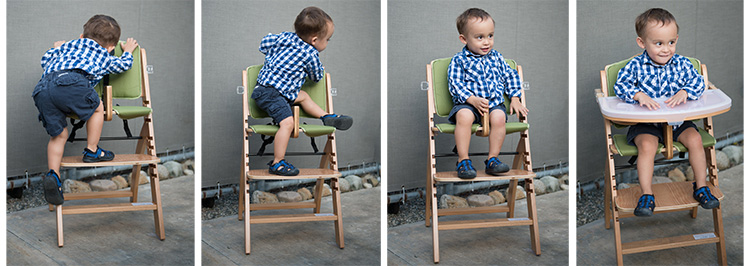When someone is lying down, you say sit up.
When someone is standing in an upright position, you say sit down.
What in the situation when you want to ask a very small kid to sit down to a chair, but the chair is too high for him so he has to climb up the chair to sit down on it?

(source: voiceboks.com)
Sit down sounds like not matching the context. Would you still use sit down?
What I want to find is if for the native English speaker the phrase sit down is stronger than the idea of the logical direction as in sit up (which seems more natural to me as the non-native speaker). So if you really had to choose and you had no other options, what would you select.
(I believe this is not a duplicate of lying down and then sit up/down?)
